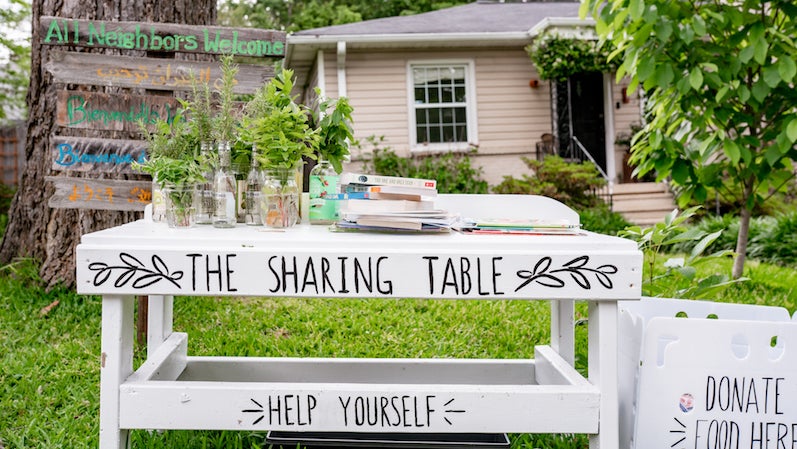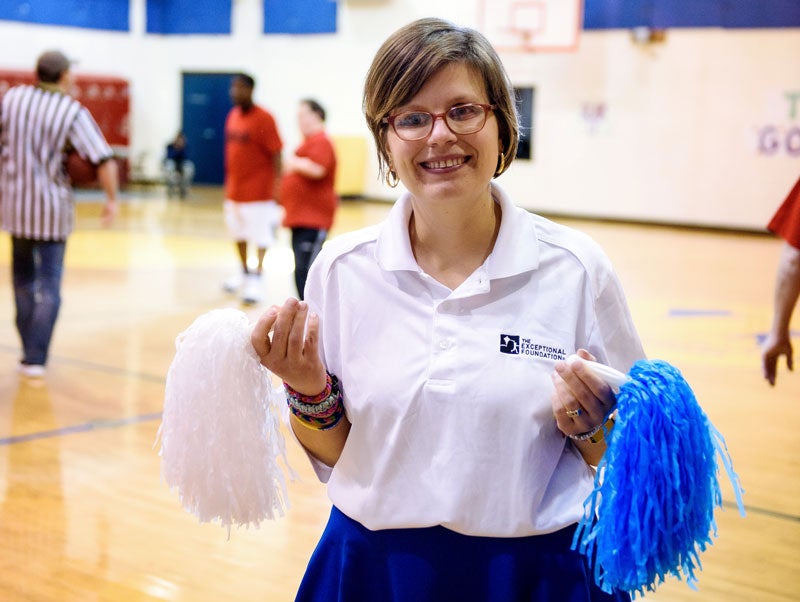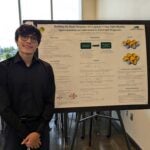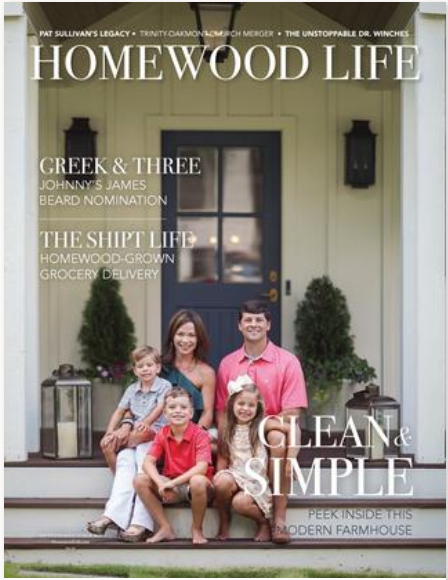By Mary Michael Kelley
Even in a Stars Hollow-like community, we’ve discovered something we can’t beautify in these very uncertain times—a virus. Of all the things that threaten our way of life, it’s this. Just because our city is financially sound and our businesses generally thrive here doesn’t mean we are immune.COVID-19 is leveling the playing field—both health-wise and economically.
In February of 2020, the employment rate in Homewood was 1.8 percent, one of the lowest in the state. By March of 2020, when the pandemic arrived, it rose to 2.2 percent. By the end of April, Homewood’s unemployment rate was a whopping 7.1 percent.
While Homewood’s rate is still lower than the national and state average (12.9 percent in April), it’s exponentially higher than the national rate just a few months ago, and the people behind these statistics are our neighbors and friends. These numbers also don’t reflect residents who endured pay cuts. Here we share a few of their stories of loss, hope and giving back during these difficult times.
Joy
While many of her neighbors were starting to work from home during quarantine, Joy’s* family didn’t have that luxury. She works in a professional position while her husband, Paul, works for a local municipality considered an “essential service,” even though his particular job was non-essential. This caused a great deal of stress on the couple, as both were considered high-risk for catching the virus.
However, they took the necessary precautions and decided that her husband would place himself into quarantine—bathing, sleeping and eating in a different part of the home separated from his family. That Monday, he went to work and began isolating himself. In order to protect their workers, Paul’s employer gave him hand sanitizer spray, and he brought his own mask. He spent his days with three co-workers in close proximity, and Paul had no control over what his colleagues did in their time off work or how they protected themselves.
As time went on, it became clear to the couple that the risk Paul took going to work wasn’t worth it, so they requested letters from his physician documenting his high risk with the virus. The doctor’s office explained they were not providing excuse letters at that time, so Paul had a decision to make: keep going to work for a paycheck and risk exposing his family, or stay home and use up all his leave before going unpaid.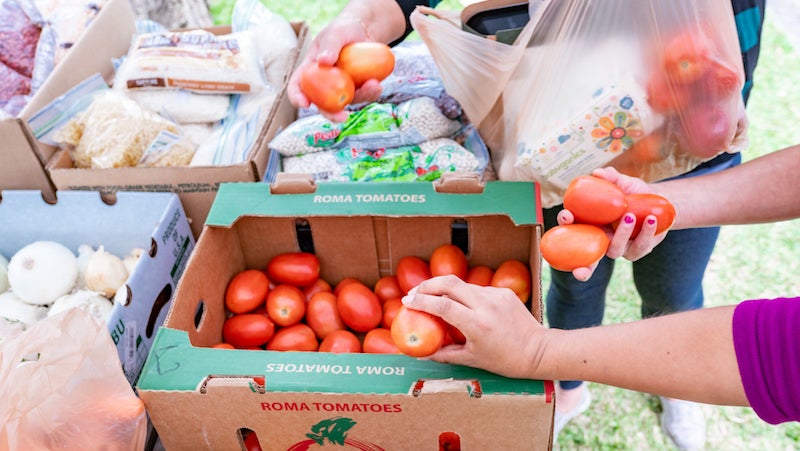
He chose the latter in late March as the virus ramped up. He used up all of his paid time off and knew he had no choice but to go back to work. In the week leading to his return, Joy was so stressed that she lost eight pounds. “I was so upset that I told him I was willing to lay my body down in the driveway to keep him from going if that’s what it took,” she says.
Paul discovered later that someone had shown up to his job site in mid-April with the virus. Only the three people who had the closest contact with the individual were tested. One request for his leave was denied in March, as was a second request following the exposure, despite the fact that his role in the municipality was not an essential service.
Joy considers herself a woman of faith and has engaged meditation practices to get through this experience. One person she follows on social media advised that when worries get out of control, to create a “God Box,” so she placed her husband’s job security in hers and let it go as best she can.
“My hope and prayer is that God will give us favor and they will understand the decision he made—how it affected not just him, but me, and our blended family,” she says. “It’s just complicated. Being a divorcee, and having had the opportunity to find love again, I thought to myself what my life would be like if he wasn’t here, and a paycheck is one thing. But I can’t replace him. You can’t replace people. It’s especially difficult for him because men are raised to be providers, but no one should have to make a choice between their job or their life.
“We’re going to have to make some hard choices, but my choice still remains that his life is far more valuable than any paycheck.”
Paul has been home since mid-April to protect his wife, their children, and himself, and as of the writing of this article, he was unsure of his future with his employer.
Angela
Angela and her family moved to Homewood last summer from Shelby County for the schools, as their oldest daughter is in elementary school and their youngest child isn’t too far behind. The move also shortened the commute time for both Angela and her husband. “It was just a quality of life decision,” she says. “Less time in the car driving to and from work meant more time at home with each other and the kids.”
They settled into Homewood beautifully, and Angela, a nurse who had recently gotten her master’s degree to become a nurse practitioner, was getting tired of the bedside hospital night shifts. When she was offered an opportunity late last year as an nurse practitioner with a reproductive clinic with regular office hours, she was thrilled.
Unfortunately, in mid-March, when all non-essential workers were instructed to shelter-in-place, an order came from the American Society for Reproductive Medicine to suspend all new fertility treatments, the cancellation of embryo transfers, and the suspension of elective surgeries and non-urgent diagnostic procedures, essentially limiting the new income generation of the clinic where she’d only recently started working. As she was the newest on the team, when the clinic had no choice but to make lay-offs, she was one of the first to go.
“I was shocked,” she says. “One of the reasons I went into nursing in the first place is because it’s a recession-proof profession. But apparently it’s not pandemic-proof.”
When we spoke with her, Angela and her family were managing well all things considered. Her husband, a high school teacher, had been engaging with his students through e-learning students and was eagerly awaiting the plan for reopening in the fall. But times have been tight. “Normally, we travel, we plan day trips with our kids, and we are able to put money towards retirement. But unfortunately, all of those things have been placed on hold,” she says. “I never in a million years imagined we would be in this situation. Never.”
As of when this article was sent off for publication, Angela had good news though: She was back to work with an outpatient clinic as a nurse practitioner.
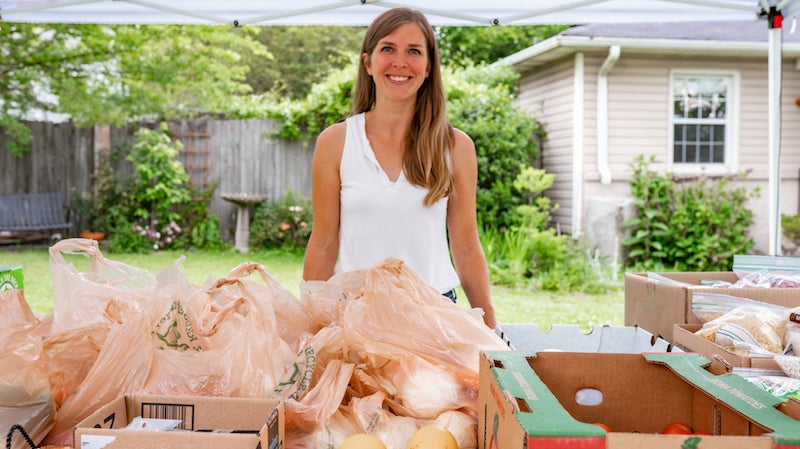 Mary Liz
Mary Liz
Speaking of good news, Mary Liz Ingram is no stranger to sharing with plants, meals and more with her neighbors on Montgomery Lane in West Homewood, but she began to think about it in new ways as quarantine began. At the most basic level, people need food for their families—and when life gets tough, the grocery bills feel even more daunting. It was at that point that she began setting up a tent with a table outside her front yard with a sign reading, “Free Food.”
The rest was an organic process that she never expected. Just like in The Field of Dreams, she discovered, “If you build it, they will come.” People started driving by in their cars asking, “What’s the catch? Can I really just get some food?”
Not only did the number of families stopping by each day increase, but so did the number of neighbors pitching in—with either grocery runs to stock the supply or financial donations for Mary Liz to purchase produce. “I just believe that as a town, we are in this together, and neighbors have a responsibility to share the burden with their neighbors in tough situations,” she says.
This home-grown neighborhood food outreach has grown so much that it’s now partnering with Trinity United Methodist’s Food Share project. An even cooler part of their work? They’ve received donations from individuals who have lost jobs and received help from the neighborhood farm stand.
After all, when one card falls in a house of cards, they all fall, and Homewood has a history of supporting their own. It’s initiatives like it that provide the glue to keep the house of cards intact, and during these stressful times, we need as much glue as possible.
Editor’s Note: Some names in this article have been changed to protect identities upon our neighbors’ request.